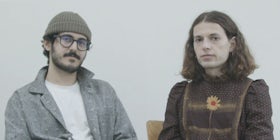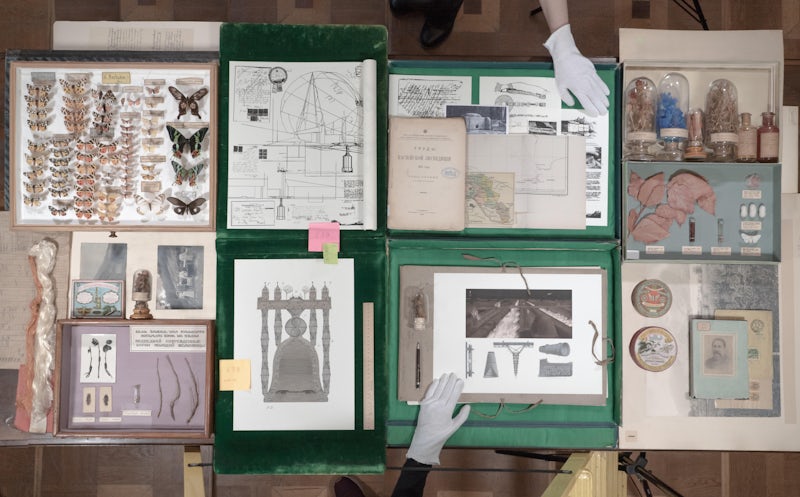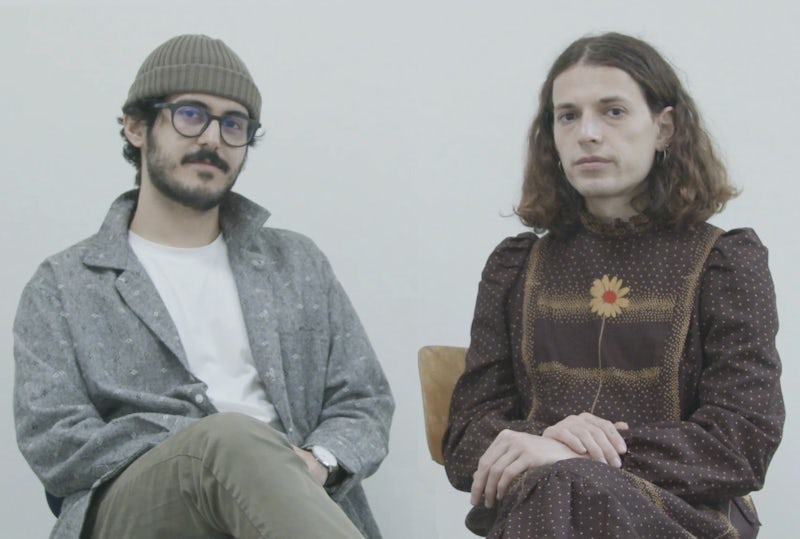
Artist duo Pejvak invited as new research fellows M HKA / Van Abbemuseum

Following our open call for the M HKA / VAN ABBEMUSEUM RESEARCH FELLOWSHIP within the framework of the L’Internationale OUR MANY EUROPES PROGRAMME, M HKA and the Van Abbemuseum are pleased to announce that the artist duo Pejvak have been invited to develop a research project responding to the two forthcoming exhibition frameworks: Eurasia – A Landscape of Mutability ( M HKA, October 2021 – January 2022, curated by Nav Haq and Joanna Zielińska) and Rewinding Internationalism: The 1990s and Today (Van Abbemuseum, December 2021 – April 2022, curated by Nick Aikens).
Pejvak (meaning “echo” in Farsi) is the long-term collaboration between Felix Kalmenson and Rouzbeh Akhbari. The regional contexts of Pejvak’s collaborative efforts are diverse, with recent collaborations centred on the countries which fall within the landscapes that have been historically contested by the Russian and Persian Empires, drawing on both Akhbari and Kalmeson’s shared cultural and linguistic knowledge-base to generate critical research-based interventions. Through their multivalent, intuitive approach to research and living, they find themselves in a convergence and entanglement with like-minded collaborators, histories and geographies. Pejvak began in 2014 in Casablanca, Morocco, and has since undertaken large-scale exhibition and research projects internationally, including at the State Silk Museum (Tbilisi), Si Shang Art Museum (Beijing), The Work of Wind produced by Blackwood Gallery (Mississauga), Onsite Gallery (Toronto), ACSL (Yerevan), Les Abattoirs (Casablanca) and Hay Art (Yerevan). Pejvak is currently in a year-long research and production residency at the Jan Van Eyck Academie (Maastricht).

The high quality of Pejvak’s proposal stood out from the approximately 300 applications sent by international researchers, artists and curators from around the world. Their proposal responds to many of the frames and questions in the open call – traversing concepts of Eurasia, trans-nationalism and internationalism. Titled Every Now and Then, the focus of their research project will be on the Ferghana Valley, lying between the Alai and Kuramin mountain ranges, spread across eastern Uzbekistan, southern Kyrgyzstan and northern Tajikistan in Central Asia. In particular, it will trace micro-histories from the turn of the 20th century in and around the valley, following the characters whose narratives are tangentially associated with the ongoing water tensions in the region. The trans-historical nature of their research proposal also speaks across the different contexts of the immediate Post-Soviet moment of the 1990s, as well as turning back towards the turn of the 20th century and forward to the global realities of today.
About the ‘L’Internationale’ confederation
L’Internationale is a confederation of seven modern and contemporary art institutions. L’Internationale proposes a space for art within a non-hierarchical and decentralised internationalism, based on the values of difference and horizontal exchange among a constellation of cultural agents, locally rooted and globally connected. It brings together seven major European art institutions: Moderna galerija (MG+MSUM, Ljubljana, Slovenia); Museo Reina Sofía (Madrid, Spain); MACBA, Museu d’Art Contemporani de Barcelona (Spain); Museum van Hedendaagse Kunst Antwerpen (M HKA, Antwerp, Belgium); Muzeum Sztuki Nowoczesnej w Warszawie (Warsaw, Poland), SALT (Istanbul and Ankara, Turkey) and Van Abbemuseum (VAM, Eindhoven, the Netherlands). L’Internationale works with complementary partners such as HDK-Valand Academy of Art and Design (HDK-Valand, Gothenburg, Sweden) and the National College of Art and Design (NCAD, Dublin, Ireland) and together with them is presenting the programme “Our Many Europes”.
About ‘Our Many Europes’
Our Many Europes is a four-year programme (2018–22) comprising exhibitions, public programming, heritage exchange and institutional experimentation, organised by the European museum confederation “L’Internationale” and its partners, and co-funded by the Creative Europe Programme of the European Union. The programme takes the 1990s as a starting point when our current Europe was born. It aims to think speculatively about the role of culture as a driving force in showing who and how we are in the world.



